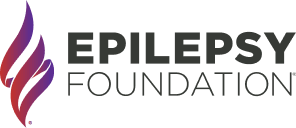Drug Abuse as a Seizure Trigger
The effects and risks of so-called recreational drugs vary greatly. They may directly affect the brain and seizures or interact with seizure medications. The effects will vary for different drugs and from one person to the next.
Cocaine
All forms of cocaine use can cause seizures within seconds, minutes, or hours after it is taken. Seizures caused by cocaine are uniquely dangerous and may be associated with heart attacks, disrupting the heart's normal rhythm (cardiac arrhythmia), and death. They can even occur in someone who has never had a seizure before. If you have epilepsy, you definitely should avoid cocaine.
Amphetamines and Other Stimulants
Amphetamines are brain stimulants. When used under a doctor's supervision, amphetamines or other stimulants do not seem to increase the risk of seizures in people with epilepsy. However, there are a few exceptions.
- If you abuse amphetamines or related drugs like "Ecstasy" (MDMA), you can experience sleep deprivation, confusion, or major psychiatric disorders. When this happens, you are very likely to forget your seizure medicine, which can also trigger seizures.
- Some researchers have also found long-lasting damage to the brain from the use of some types of stimulants. Very high doses of amphetamines can cause severe tonic-clonic seizures, heart attacks, and death.
Marijuana
Studies in animals have suggested that tetrahyrdocannabinol (THC, the active ingredient in marijuana) and cannabidiol (CBD, a substance in marijuana which does not cause psychoactive effects) can help seizures as well as provoke them. However, not enough is known about which ingredients and how much of them can help or harm people with seizures. Marijuana also has bothersome side effects, and stopping marijuana suddenly after using it recreationally could increase the risk for seizures. Learn about medical cannabis (medical marijuana) here. More study is needed about the use of medical marijuana and its risks or benefits.
Heroin
Heroin and related narcotics are drugs derived from opium, such as OxyContin (oxycodone), or are manufactured drugs to be chemically similar to opium. These drugs do not directly affect the likelihood of seizures in people with epilepsy. People who use these drugs often forget to take their prescribed seizure medicines, however. Taking large amounts of narcotics can cause serious lack of oxygen to the brain, which can lead to seizures.
Nicotine and Caffeine
There is no evidence that using these two popular legal drugs in usual or ‘normal’ amounts affects seizure control for most people with epilepsy. Occasionally there are stories of susceptible people who experience seizures, especially if they use large amounts.
- For caffeine, it may be difficult to tell how much you are getting, since many different beverages, foods, and medications include it.
- Caffeine may affect a person’s seizures by interfering with sleep, rather than triggering seizures directly.
- Cigarette smoking is likely more dangerous than the effects of nicotine for people with seizures: the loss of consciousness or control of movement can cause you to drop a lighted cigarette and start a fire.
For more information, look in the Drug Facts section of the Office of National Drug Control Policy website, or at: PubMed, a service of the National Library of Medicine.
Resources
Epilepsy Centers
Epilepsy centers provide you with a team of specialists to help you diagnose your epilepsy and explore treatment options.
Epilepsy Medication
Find in-depth information on anti-seizure medications so you know what to ask your doctor.
Epilepsy and Seizures 24/7 Helpline
Call our Epilepsy and Seizures 24/7 Helpline and talk with an epilepsy information specialist or submit a question online.
Tools & Resources
Get information, tips, and more to help you manage your epilepsy.


